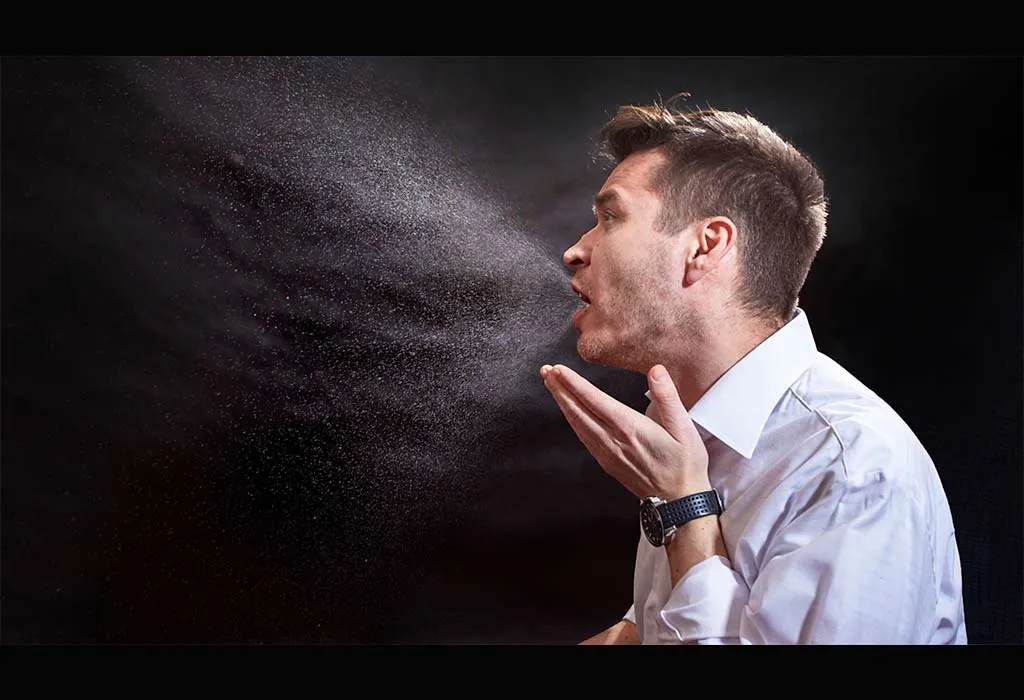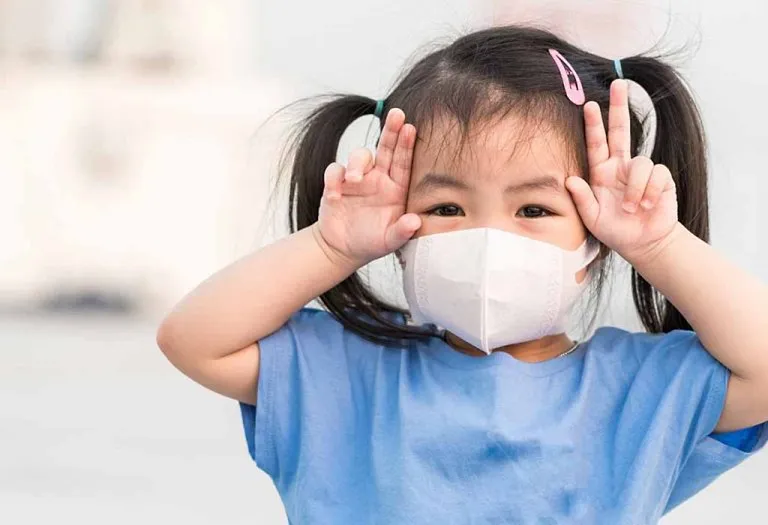Seasonal Changes and Flu Risks – The Power of Annual Flu Vaccination!
It happens every year. Whenever the monsoon or winter season comes, somebody in the family gets under the weather. This is followed by headaches, uncontrollable sneezes, and medications. Children end up missing school, activities, and celebrations, while adults forfeit work and family time. Have you ever wondered why this is an annual episode?
Meet the seasonal flu!
If you’ve been scratching your head for an explanation and a solution, you are at the right place. Ahead, we discuss why and how seasonal changes compromise people’s health, what seasonal influenza is, and how to prevent it!
What Causes Illnesses Among People During Seasonal Changes?
The correlation between changes in seasons and people getting sick is very subtle. The change in temperature is not what causes people to get sick. Instead, it’s the group of viruses and allergens that flourish when the temperature shifts.
Like rhinovirus and coronavirus, the influenza virus also replicates faster and spreads when the air is cool and dry. That is the reason many people have a runny nose, cold, and flu in monsoons and winters.
What Is Seasonal Influenza or Flu?
Influenza, most commonly known as the flu, is an infectious respiratory illness that infects the host’s throat, nose, and lungs. It is caused either by the influenza A or B viruses (1). The flu is transmitted through inhaling airborne droplets containing flu viruses, being in close contact with the infected person, or touching surfaces that are contaminated with the flu virus (2).
Highly transmissible, it can lead to mild to severe illness and, at times, hospitalisation or death. The best way to reduce the risk and severity of this illness is by getting vaccinated each year (3).
Why Is It Important to Take the Influenza (Flu) Vaccination?
The WHO recommends influenza vaccination as an established and efficient tool for preventing and reducing serious outcomes caused by the influenza virus, particularly for those at high risk. Flu vaccination in pregnancy protects pregnant women and their infants until they are ready for the vaccine.
What Are the Types of Seasonal Influenza Viruses?
There are two main types of seasonal influenza viruses: Influenza A and Influenza B. Both types are known for causing outbreaks in people yearly. Influenza A virus is responsible for infecting humans and animals, whereas influenza B virus affects only humans. Both the virus types can cause mild to severe complications in all age groups (2).
Signs and Symptoms of Influenza
Unlike the common cold, flu is more sudden and has more pronounced symptoms that last for around 5-7 days. Some common symptoms of flu are (1):
- Chills and sweats
- Fever
- Cough
- Sore throat
- Stuffy or runny nose
- Tiredness and breathlessness
- Headache
- Muscle or body aches
- Vomiting/Diarrhoea – it is more common in children than in adults
Remember, not everyone with flu will experience fever.
Who Is Likely to Develop Complications From Seasonal Influenza?
Influenza can affect anyone, spanning all age groups, but there are certain people who are at a high risk of contracting the flu and developing serious complications. Such people include (4):
- Young children below 5 years
- Elderly individuals above 65 years,
- Pregnant women and their infants
- Immuno-compromised individuals and those with chronic health issues, such as blood disorders, asthma, diabetes, heart disease, and liver disease.
- Healthcare professionals
Complications of Influenza
A person with influenza might experience severe complications, such as bacterial pneumonia, inflammation of the heart, encephalitis, ear infections, and sinusitis. It can also exacerbate pre-existing health issues, including diabetes, asthma, multi-organ failure, and heart failure (5) (6).
For pregnant women, the potential complications can include premature labour and fetal distress.
How Can You Prevent the Influenza Disease?
One of the best forms of protection from flu is influenza vaccination (7). Flu vaccination has shown positive results in reducing flu-related illnesses and the risk of hospitalisation and death. Besides vaccination, here are a few practices that can help prevent flu (8):
- Steer clear of people who are ill, particularly during the peak of flu season. Keep a distance of at least 6 feet from others.
- Wash your hands frequently and thoroughly using soap and water. If water is not available, use a hand sanitiser.
- Cover your nose and mouth with a tissue or a sleeve when you cough or sneeze. Do not reuse the tissue.
- Refrain from touching the eyes, nose, or mouth often with unclean hands.
- Avoid unhealthy street food.
- If you catch the flu, stay home for at least 24 hours after your fever has gone down. Also, avoid self-medication.
How Does Annual Flu Vaccinations Help?
Influenza viruses change, and new strains circulate every year. Every year, a new vaccination formula is created to tackle the viruses that are likely to cause more harm in the current season. (9) In addition to that, the immunity from the flu vaccination reduces after a year. Hence, annual influenza vaccination is recommended even if the strains are not changed much.
Annual flu vaccination is highly recommended for children between 6 months and 5 years, those aged above 65 years, and those with comorbidities or chronic medical conditions, such as diabetes and asthma.
Types of Seasonal Influenza Vaccinations
Two types of seasonal flu vaccines are available:
- Flu Shot: A flu shot or injectable vaccine uses inactivated flu virus to develop antibodies. It is given as an intramuscular injection to children 6 months and above. The vaccine causes slight pain in the injected area and mild side effects.
- Nasal Spray: Nasal spray or intranasal vaccine uses live viruses that have been weakened or attenuated to develop antibodies. It is given as a spray into the nostrils of children 2 years and above. The vaccine is painless and causes mild side effects, such as runny nose and wheezing.
Where Can You Get the Seasonal Flu Vaccination?
Seasonal Influenza vaccination should be taken before the start of peak flu season. Quadrivalent vaccines are recommended by the WHO for use during the influenza season in the Northern Hemisphere, including India.
In regions where flu peaks in the monsoon season from July to September, vaccination should be given from April to May. In areas where winter is the peak season for influenza, the vaccine should be given during September-October.
Consult your doctor or the nearest immunisation provider for the influenza vaccination.
Who Should Get the Influenza Shot?
Influenza vaccination is recommended for all people aged 6 months and above who do not have a contraindication to the flu vaccine (10).
Pregnant women in their third trimester and young children are recommended to receive the vaccination as soon as it is available.
Who Should Get Annual Flu Vaccination?
Everyone aged 6 months and above (even healthy adults) is recommended to receive the annual flu vaccination. However, it is extremely important for children between 6 months and 5 years and individuals with comorbidities and chronic medical conditions to receive the annual flu vaccination (11).
Who Should Avoid Getting the Vaccination?
In general, flu shots can be given to anyone except:
- Young children below 6 months of age.
- People with a history of a life-threatening allergic reaction to an earlier dose of flu vaccine and any component of the vaccine.
- The nasal spray vaccine should not be administered to children below 2 years, pregnant women, adults aged 50 years and above, and those with weakened immune status.
Individuals allergic to eggs should consult their doctor before getting the flu vaccination.
Are There Any Side Effects?
Not everyone taking the flu vaccination will experience side effects. However, some commonly noted side effects of the flu vaccine include:
- Soreness or redness at the injection site (only in case of injectable vaccine)
- Mild fever
- Fatigue for a day or two
- Muscle ache
- Nausea
- Headache
- Runny nose and wheezing (only in case of the nasal spray)
When to See a Doctor
If you fall in the category of high-risk individuals and catch flu, contact your doctor as soon as possible for symptomatic treatment.
If adults experience any of the following signs and symptoms, they must see the doctor right away:
- Difficulty in breathing
- Seizures
- Chest pain
- Continuous dizziness
- Severe muscle pain
- Worsening of existing medical conditions
If children experience any of the following signs and symptoms, they must get medical care right away:
- Difficulty in breathing
- Worsening of existing medical conditions
- Chest pain
- Blue lips
- Muscle pain
- Seizures
With the help of little changes in your life, such as annual flu vaccination, a healthy diet, regular physical activity, use of a humidifier when seasons change, and being mindful of standard hygiene practices, you can succeed in keeping illnesses at bay!
References/Resources:
1. Signs and Symptoms of Flu; CDC; https://www.cdc.gov/flu/signs-symptoms/index.html
2. Influenza: Questions and Answers; Immunize.org; https://www.immunize.org/wp-content/uploads/catg.d/p4208.pdf
3. Seasonal Flu Vaccine Basics; CDC; https://www.cdc.gov/flu/vaccines/?CDC_AAref_Val=https://www.cdc.gov/flu/prevent/flushot.htm
4. People at Increased Risk for Flu Complications; CDC; https://www.cdc.gov/flu/highrisk/index.htm
5. Flu Complications: Risk Factors, Symptoms and Prevention; Nationwide Children’s; https://www.nationwidechildrens.org/family-resources-education/700childrens/2020/01/flu-complications
6. Influenza; Johns Hopkins Medicine; https://www.hopkinsmedicine.org/health/conditions-and-diseases/influenza
7. 2024-25 CT Influenza Vaccination Clinics; DPH Immunizations; https://portal.ct.gov/immunization/knowledge-base/articles/general-public/vaccine-information-by-population/2024-25-ct-influenza-vaccination-clinics?language=en_US
8. Influenza (flu); Mayo Clinic; https://www.mayoclinic.org/diseases-conditions/flu/symptoms-causes/syc-20351719
9. Recommendations announced for influenza vaccine composition for the 2022-2023 northern hemisphere influenza season; WHO; https://www.who.int/news/item/25-02-2022-recommendations-announced-for-influenza-vaccine-composition-for-the-2022-2023-northern-hemisphere-influenza-season
10. Seasonal Flu Vaccine Basics; CDC; https://www.cdc.gov/flu/vaccines/?CDC_AAref_Val=https://www.cdc.gov/flu/prevent/flushot.htm
11. Who Needs a Flu Vaccine; CDC; https://www.cdc.gov/flu/vaccines/vaccinations.html
Also Read:
Meningococcal Vaccination
Child Immunization & Vaccination Schedule
Childhood Vaccinations for Various Diseases
Flu Vaccine for Babies and Children
Should Your Child Get the Flu Shot? Top FAQs Answered
Was This Article Helpful?
Parenting is a huge responsibility, for you as a caregiver, but also for us as a parenting content platform. We understand that and take our responsibility of creating credible content seriously. FirstCry Parenting articles are written and published only after extensive research using factually sound references to deliver quality content that is accurate, validated by experts, and completely reliable. To understand how we go about creating content that is credible, read our editorial policy here.
















.svg)


















